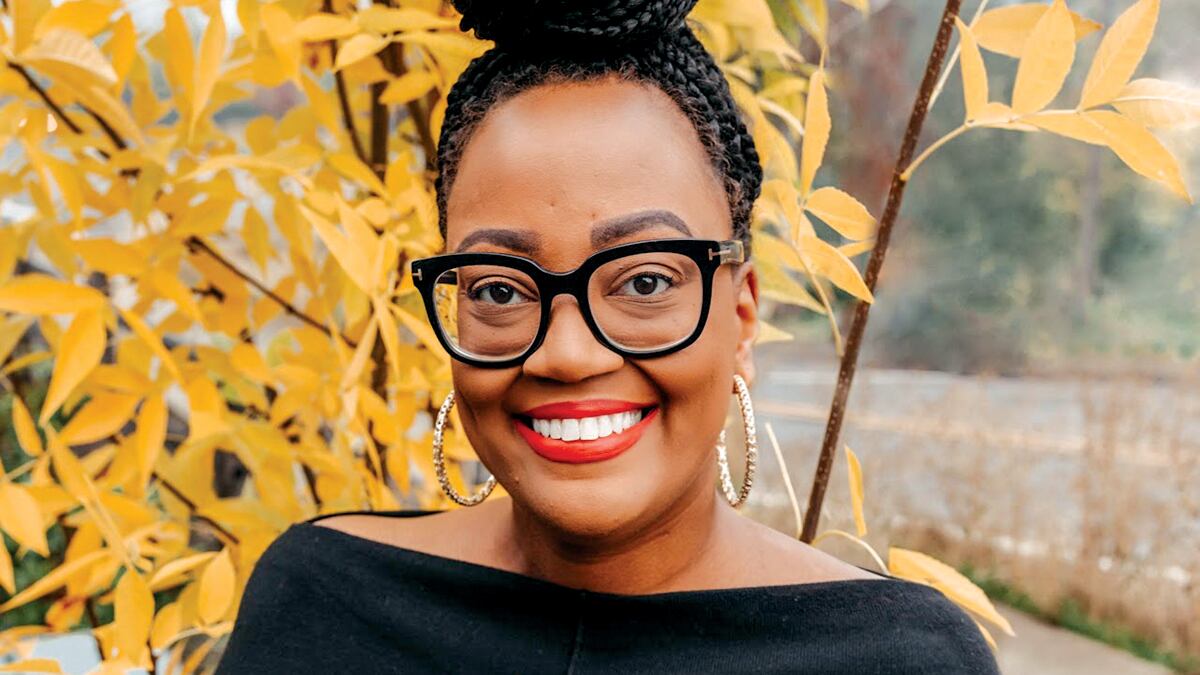In few places in Oregon are cultural politics as toxic as in Newberg, where the school board in September banned displays of Black Lives Matter symbols and Pride flags.
Tai Harden-Moore traces the fracture to her unsuccessful bid to serve on the school board in 2020.
Harden-Moore, 41, a diversity and inclusion consultant, moved to Yamhill County when she returned to Oregon in 2015 because renting a house in Portland was unaffordable for her family.
On Nov. 30, she announced she’s running for office again—this time for Yamhill County commissioner—with priorities to tackle the “homelessness crisis, the economy and the lack of access to good-paying jobs in Yamhill County.” But in Yamhill County, any bid for elected office means a confrontation with the Newberg School Board’s racist and homophobic policies—the state’s most prominent example of conservative panic over “critical race theory.”
We asked Harden-Moore what she makes of the political outrage Yamhill County has sparked in Portland.
WW: Is there something in particular that inspired your run for office?
Tai Harden-Moore: I ran for school board in the last election cycle, and I lost that election, and we’ve seen the repercussions of that loss with the Newberg School Board and the racist and discriminatory policies that they’ve put forward, banning Black Lives Matter and Pride symbols. And that was a direct result, I think, of my loss.
But I was very committed to helping this community, to addressing the issues that need to be addressed in this community. This is my home. And, as a Black woman, I have just as much right to say what I like and what I don’t like about the community I live in. I’m going to do something to fix it.
How did your loss result in this?
The other candidates ran as a slate of “Save Our Schools.” And the question continuously was: “Save our schools from who?” And [the answer was] from them, those women of color, those outsiders. And so there was a lot of drama around my run, and folks were tearing down my sign, saying that I was un-American, I was unpatriotic and things like that based on nothing more than the fact that I’m just a Black woman. And so a Black woman living in Newberg and Yamhill County, they felt I could not be patriotic, could not be a proud American, which is completely untrue. My father was a veteran—he’s buried in the national cemetery in Washington—so that’s not true.
And that really did help me make the decision to make this run because those people can’t have the loudest voice.
What’s the most alarming thing to you about the decisions that have been made by the school board?
I think the potential illegality of it. There hasn’t been a legal decision made yet on the policy or the firing of the superintendent or any of the things going on in Newberg.
Have you experienced a change in how you’re treated in the community because you’re a Black woman?
Newberg has not been a completely unwelcoming place to me because I’m Black, but it hasn’t been a completely welcoming place either.
My primary concerns were always for my children. And my son left the district at his request because he was called the N-word in seventh grade and just felt like he wasn’t able to make real connections with friends. He was kind of boxed in by teachers. He’s an athlete. So he was the Black athlete and no one wanted to see him as any more than that, but he’s also a brilliant student who gets straight A’s now that he’s at another school.
Is there anything hopeful for you about what’s happening around the school board or the high school?
We’re not this racist place where nobody’s welcomed here. That’s not Newberg. If it were, I wouldn’t live here, but that’s the narrative that’s being pushed by some folks that don’t like Black Lives Matter.
You mentioned surviving cancer: What does that experience mean you bring to elected office?
I’m actually currently still in treatment. I’m in treatment for stage IV metastatic breast cancer, and will be in treatment for the rest of my life. I’ve been in treatment for four years [as of Nov. 30], so the launch date of the campaign was not by accident.
I had cancer in law school and it didn’t stop me, then why would it stop me now?

